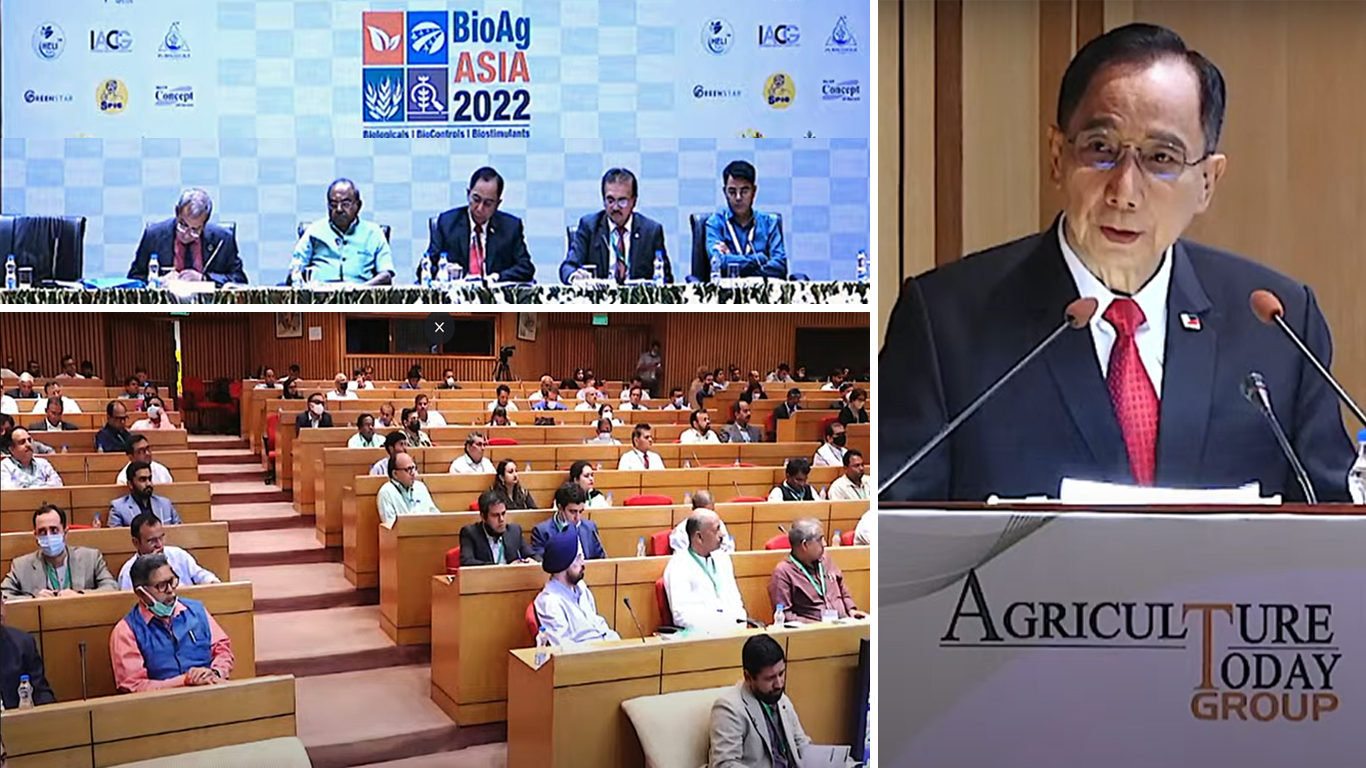
New Delhi, India – As the world faces the dilemma of dwindling yield and unproductive lands due to overuse of chemical inputs, key players in bio-agriculture in Asia have joined forces to discuss policy measures and come up with expeditious initiatives toward global food sustainability, with emphasis on environmental protection and biodiversity.
Philippines’ Department of Agriculture Secretary William Dar, in his opening message during the “BioAg Asia 2022” on April 20, emphasized the need for the systematic implementation of science-based technologies and innovations to attain the maximum potential of food production areas around the world.
“As the servant-leader of the Philippine agriculture department, I would want agricultural development to be a major part of our multilateral discussions. In particular, our cooperation in science and technology should also redound to modernizing and industrializing our agriculture sector,” he said.
The agri chief encouraged more than 100 delegates from dozens of Asian countries to promote and implement natural and biological solutions to produce more with less, particularly in the judicious and balanced use of organic and inorganic farm inputs to enhance crop yields, ensure quality of produce, and subsequently increase farmers’ incomes.
He said that their collective actions towards increasing productivity must always be backed up by extensive research and field validation.
“Right now, we are exploring a variety of ways to lower the Filipino farmer’s cost of production. We intend to achieve this objective even as we continue to ensure the sustainability of our farming enterprises – and we are banking on science and technology for solutions,” Dar said.
Sharing the Philippine experience, he cited the success of the balanced fertilization strategy (BFS), which involves the application of both inorganic and organic fertilizers, depending on the available soil nutrients of a particular farm.
“Our research shows that farmers can achieve a seven to 15 percent increase in yield using this practice. This is on top of significantly reducing the volume of inorganic fertilizer requirements,” he said.
The Philippine government has commenced the study of the advantages of biological farming, and has kicked off the training of farmers to use conventional and organic farming methods, including adoption of bio-pesticides, bio-fertilizers, and bio-stimulants to sustain soil nutrients and manage plant nutrition.
“We have doubled our efforts in promoting organic farming through our National Organic Agriculture Program, and have posted the highest growing numbers of organic vegetable producers in the world with more than 165,000 organic farms,” he said.
Secretary Dar is optimistic that “BioAg 2022” will produce key results in determining the right direction the agriculture sector needs to move forward, to attain sustainable food systems for all humanity.
“I know that we could find common cause in our respective food security and agricultural technology benchmarks, and finalize a free trade agreement between our countries, thereby pushing for solid trade partnership for agricultural technology,” he said.
Further, he thanked the organizers of BioAg Asia for giving him the opportunity to share insights in attaining a more sustainable resilient and environment-friendly agriculture sector.
“This is sort of a homecoming for me, having served for 15 years as the Director-General of the International Crops Research Institute for the Semi-Arid Tropics (ICRISAT), in Hyderabad, India,” Secretary Dar said.
He underscored that India and the Philippines should continue to be allies in the fight against hunger and poverty.
As of February 2022, the Philippines and India, through the bilateral meeting with India’s Minister for External Affairs Dr. Subrahmanyam Jaishankar, and Philippine Foreign Affairs Secretary Teodoro Locsin, Jr., agreed to cooperate in matters of national security and development. This also includes cooperation in the domains of health, trade and investments, science and technology, defense and security, and tourism.
On April 21, Secretary Dar is set to meet with Indian Minister of Agriculture and Farmers’ Welfare Honorable Shri Narendra Singh Tomar to discuss existing agriculture cooperation between the Philippines and India, and explore possible partnerships. ### (Adora Rodriguez, DA-AFID)














